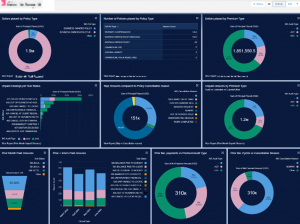Many corporate professionals have never had the misfortune of experiencing a preference demand. Most companies have become accustomed to filing claims for invoices that remain unpaid due to a bankruptcy filing.
The shock comes when the company receives a preference demand letter stating that pursuant to §547 of the U.S. Bankruptcy Code, the debtor estate legally has the right to demand the return of monies previously paid by the debtor within the 90 days prior to the bankruptcy filing.
There are several defenses available to such a demand, including the new value/contemporaneous exchange and ordinary course defenses.
These are typically the initial defense responses to the preference demand, as these defenses are usually easily attainable.
There are other defenses available, such as contractual obligations, a security interest with the debtor, or the absence of antecedent debt.
Over our many years of both pursuit of preferences on behalf of debtor estates and the defense of preference actions, we have encountered numerous views with regard to the application of the preference laws.
As the issues surrounding the defense of preference can be complicated, the involvement of a bankruptcy professional has become a necessity.
The odds are quickly stacking up against corporate America when it comes to collecting payment on past-due accounts.
One of the biggest obstacles is litigation, which is moving at a snail’s pace at best.
Consider on a large scale that due to the bad economy, more suits are being filed which is creating a backlog. Add to this the financial crunch that state governments are facing.
There are more cases, but there are no additional funds to hire more employees for the courthouses in order to handle the caseloads.
Court calendars are filling up quickly. Because of the backlog, courts are requiring mediation and settlement conferences before trial is set.
By the time you do get to trial, it is taking anywhere from 3-5 months just to obtain a certified copy of the judgment in most venues because of the backlog. In New York and New Jersey, it can take 6 months to a year based on what our company is witnessing.
The plaintiff must have a copy of the certified judgment to begin collection efforts on the court order.
It seems like a lot of bad news, but instead of asking: When will things get better? Rather ask yourself: How do you defend your company and your company’s assets?
Now is not the time to worry, but rather to get educated and fight back!
Understanding today’s obstacles and trends when it comes to recouping delinquent accounts is the key to survival.
Outsourcing is not the enemy.
Historically, Americans do not view outsourcing in a favorable light. The stigma of outsourcing is likely tied to the memory of nightly news reports of jobs being shipped overseas.
In the land of opportunity, you need to first have the opportunity to succeed, right? When you look at outsourcing from a macro perspective, it can certainly have a negative connotation. What about when you look at it from a personal or small business perspective?
We all make decisions each day in our own lives about what jobs we have the time or inclination to handle ourselves and which ones make sense to “outsource.” Small and medium businesses do as well.
But, when it comes to utilizing a collection partner, I see companies every day holding on to delinquent accounts for entirely too long. The end result is lower collectability across the board. So why do it?
Don’t play the waiting game.
If you’re playing, you’re likely losing. The two biggest factors in the collectability of outstanding accounts are age and balance. The balance you can address through your credit policy and that is another topic altogether.
The age of outstanding accounts is something more easily adjusted. It is also a factor that is most impacted by a structured accounts receivable management program.
Without a concrete (or at least very firm) collection timeline, collection personnel will usually err on the side of holding an account too long rather than turning over early. The reason could be fear of job security, concerns about costs, or just a matter of pride.
A straightforward approach and stated timeline can definitely lessen the impact of these factors.
With most industries capturing and using data to shape how they do business, feedback from a third party collection partner can be critical.
For example, even a business turning over 5 to 10 accounts a month could learn quite a bit about their own A/R, credit extending procedures, and collections from their agency, but only if there is consistent account handling prior to turnover.
Of the ten accounts, if some are turned over at day 60 and others at day 70, and still others at day 90, you simply won’t get the consistent feedback you need to fine-tune your policy.
If accounts are turned over consistently, you can adjust the age at which you turn over outstanding accounts to maximize collections both internally and with your collection partner. You will be able to gauge at which balance size you see diminishing returns and possibly adjust your credit policy accordingly.
Perhaps most importantly, you can effectively measure your agency’s performance and if a side-by-side comparison is warranted, you will know all those involved will have an even playing field both on which to compete and to be evaluated.
It takes two to tango.
Tracking your collection accounts closely on your end is just one part of a successful equation. The feedback you receive from your collection partner will play just as important of a role.
The predictable fear is that any agency will tell you they need more accounts and they need them sooner.
A true collection partner will provide data you can use to justify changes to the handling process. Information such as:
- Performance at different ages or balances
- Additional data you may already be capturing that would aid in their efforts
- Additional data you might want to begin capturing going forward.
This is meaningful. This is what a partner does. The ultimate benefit of outsourcing is not what is taken away, but rather what is returned.
At Brown & Joseph, we utilize business intelligence to provide a deeper analysis of accounts receivable performance.
We collaborate with every customer to create a customized reporting console to address key issues impacting DSO and days premium outstanding (DPO).
Learn more about how we work with clients to streamline the collections process here.





